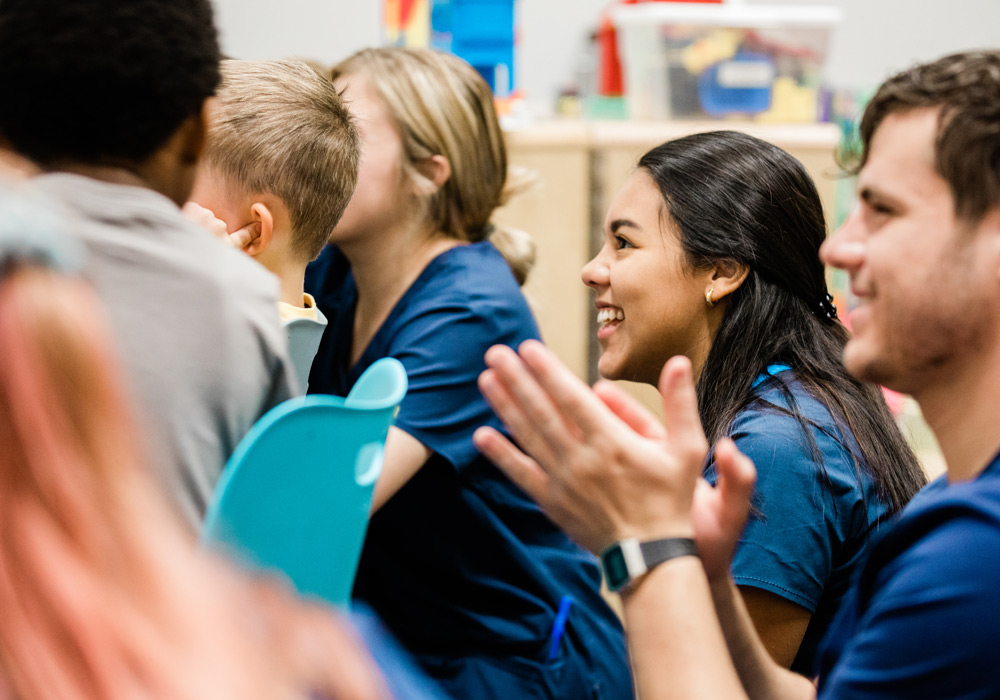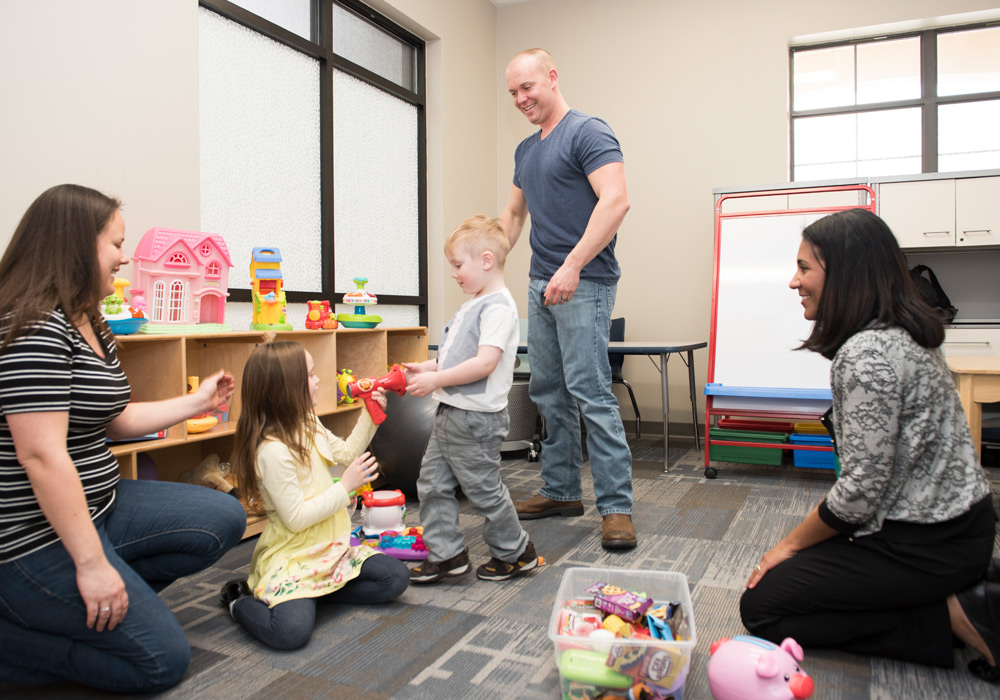Preparing UNT students to work in the field of autism is an important part of our community development. In collaboration with multiple departments at UNT, we plan on providing students with opportunities for internships, practicum work, or field experience. The University of North Texas currently has multiple programs for students to pursue their interest and training in the field of Autism Spectrum Disorders.
UNT Department of Behavior Analysis
UNT's degree programs in the Department of Behavior Analysis offer students a broad range of experiences in the classroom, research laboratories, and applied settings. The department's Master of Science degree program was the first graduate program in the nation to be accredited by the Association for Behavior Analysis. The UNT Department of Behavior Analysis was also instrumental in the founding of the Texas Association for Behavior Analysis and remains its headquarters to this day. In addition, the Department of Behavior Analysis is one of the few programs in the country providing an on-line Board Certification in Behavior Analysis. Students from all over the world have come to UNT to pursue their interests in Behavior Analysis, and graduates from this program are consistently considered to be highly accomplished Behavior Analysts. In addition to the highly respected Master of Science degree program, the Department of Behavior Analysis provides the opportunity for a Bachelor of Science degree in Applied Behavior Analysis.
UNT Department of Rehabilitation and Health Services
The Department of Rehabilitation and Health Services is comprised of community-engaged academics providing an education that reaches beyond the classroom. Faculty with expertise in applied gerontology, health services, rehabilitation counseling, substance use, and behavioral health concerns prepare students for a career making a positive change in the lives of others. Alumni of our programs become researchers, educators, administrators, and clinicians. If you are looking for a rewarding career empowering individuals in community-based, public or private settings, we have the program for you!
UNT Department of Special Education
UNT's Special Education program emphasizes strengths-based and culturally responsive practices and is committed to changing perspectives on “dis”/abilities to prepare future special educators who intentionally support learners by building learning on what is possible for each individual. Coursework and experiences develop critical perspectives and knowledge necessary to determine students' strengths and needs, and to individualize curriculum to accommodate and modify instruction based on learner characteristics. Additionally, students develop skills to promote positive collaboration with parents and other professionals to enhance the lives of children and youth with disabilities across their life span.
UNT Department of Audiology and Speech Language Pathology
The Department of Audiology and Speech-Language Pathology provides the finest graduate professional education in both speech-language pathology and audiology while maintaining an excellent undergraduate degree. The program stresses excellence in teaching, research, and service by its faculty and students. As a component of the educational program, the department operates the UNT Speech and Hearing Center. The Center offers professional services to members of our campus community and the general public for the purpose of providing clinical training for students. The Center offers state-of-the-art diagnosis and treatment of speech, language, and hearing disorders.
UNT Department of Kinesiology, Health Promotion and Recreation
The Department of Kinesiology, Health Promotion, and Recreation supports and encourage an in-depth understanding of the nature and functioning of human beings in their physical, health, and leisure behaviors and the programs which facilitate the enhanced quality of life. The Department intends to accomplish this mission through the academic preparation of professionals, contributions to the professional body of knowledge, and provision of service to the university and community at large.
UNT Department of Psychology
The two goals of the Department of Psychology's Ph.D. programs in Clinical Psychology, Counseling Psychology, and Behavioral Science are to prepare students for a career in research and teaching in colleges and universities or a career as a scientist-practitioner. We are committed to excellence so that our students are well prepared for internships, post doctoral training, or first professional positions. Once you decide which type of career you want -- teacher, researcher, consultant, or therapist -- we will help you achieve it through a variety of opportunities.
Training Events
The UNT Kristin Farmer Autism Center is dedicated to providing on-going training for parents and professionals.
Additional Training
AFIRM modules
AFIRM Modules are designed to help you learn the step-by-step process of planning for, using, and monitoring an EBP with learners with ASD from birth to 22 years of age. Supplemental materials and handouts are available for download.
Texas Statewide Leadership for Autism Training
Through a network of 20 regional Education Service Centers and in collaboration with the Texas Education Agency (TEA), the Texas Statewide Leadership for Autism Training provides a means to access training, technical assistance, support, and resources for educators serving students with autism. The purpose of this conference is to provide training and professional development for school personnel and parents of students with autism. The conference will also provide opportunities for learning effective methods of instruction and intervention to meet the needs of students with autism.


